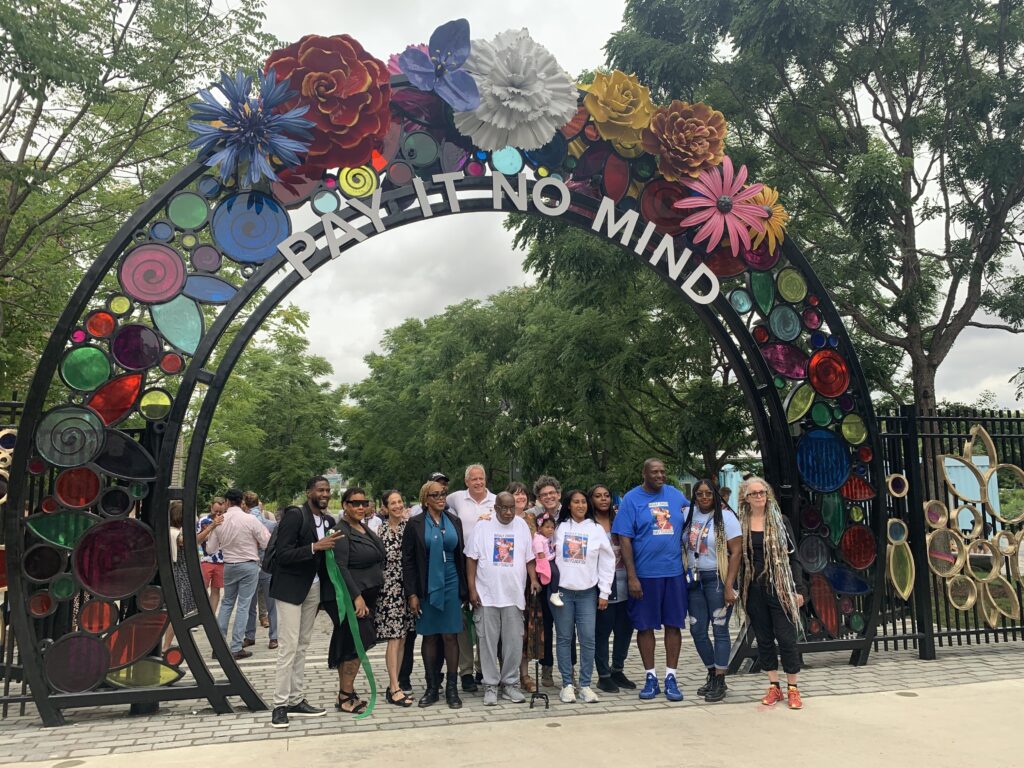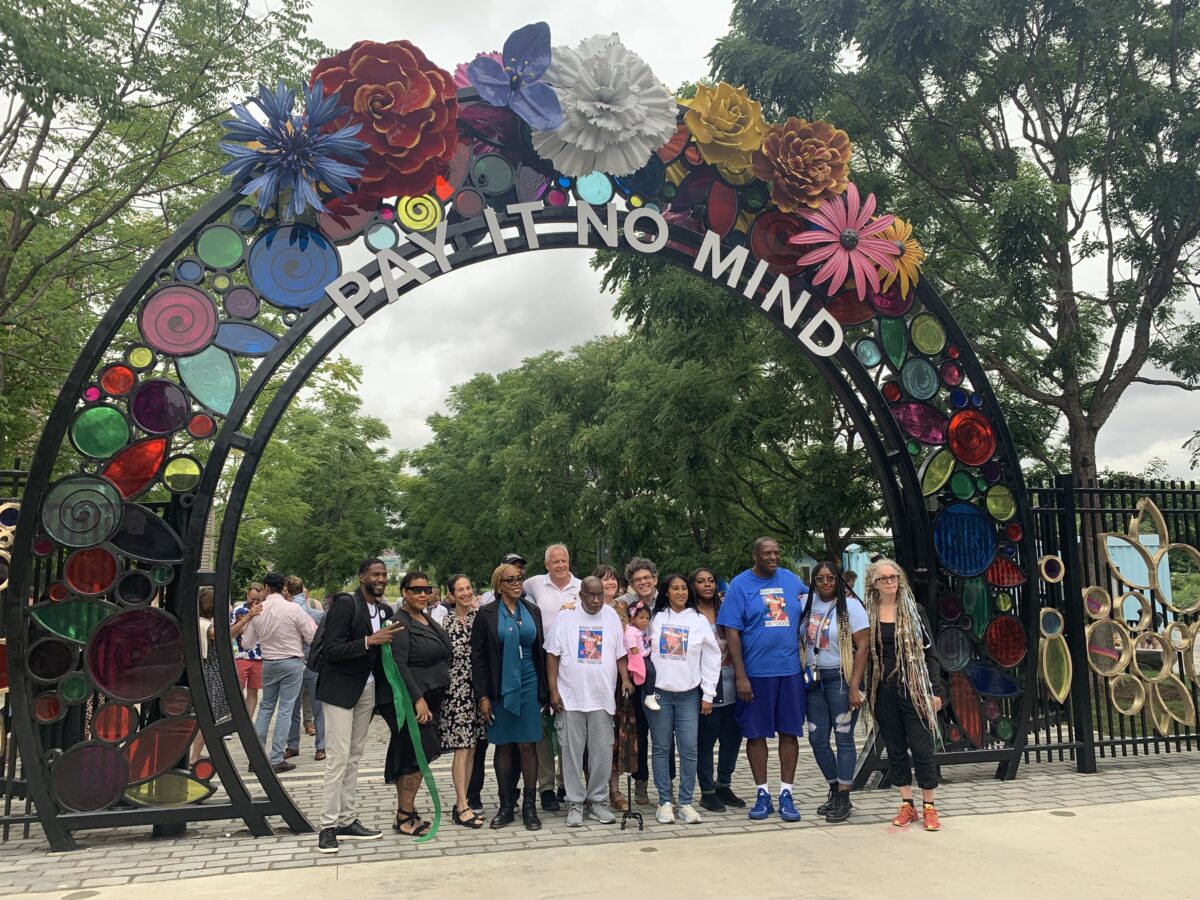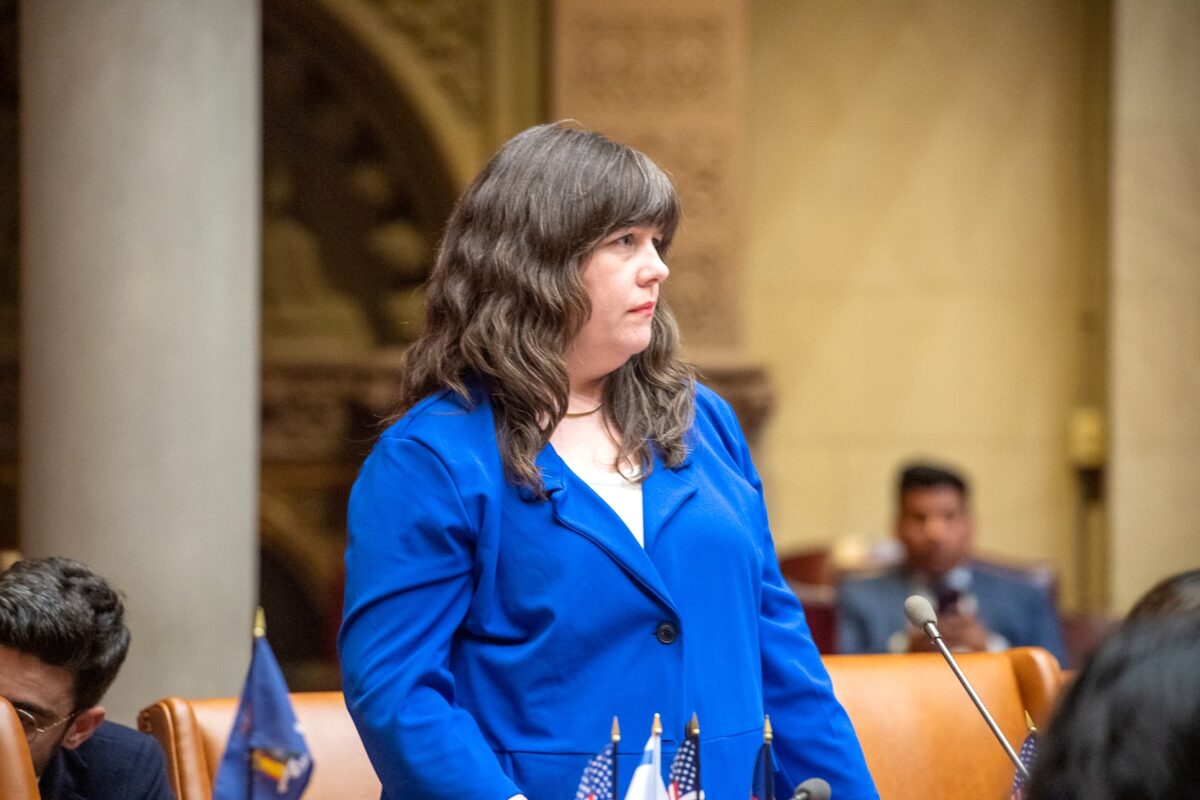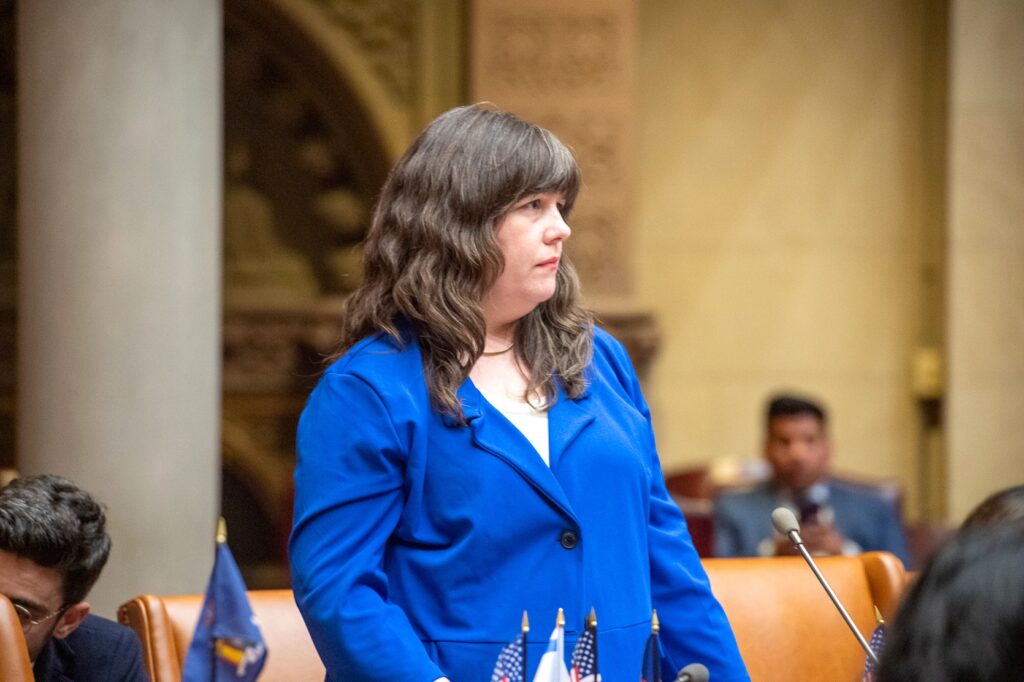Colorful New Gateway Unveiled at Marsha P. Johnson Park

Attendees pose for a photograph in front of the new gateway.
By Carmo Moniz | news@queensledger.com
Williamsburg’s Marsha P. Johnson Park has a new gateway honoring its namesake, complete with colorful metal and glass flowers and the Trans activist’s famous “Pay it No Mind” motto.
Brooklyn pols, members of Johnson’s family, New York State Parks, Recreation & Historic Preservation and local residents attended a celebration of the gateway’s opening on Thursday, what would have been Johnson’s 78th birthday.
The park has also been outfitted with new landscaping and informational panels highlighting Johnson’s life and community. Greenpoint Assemblymember Emily Gallagher, who spoke at the event, said that many involved in the project had wanted the park to be filled with plants, which influenced the final design.
Gallagher also said that the community fought the original plan for the park, which called for a large plastic walkway to be built across it and for its pathways to be covered in black asphalt, alongside the Strategic Trans Alliance for Radical Reform, which Johnson co-founded.
“This, as you know, had been a garbage dump for a long time, and it had never been treated with the care that the community really wanted when it had become a park,” Gallagher said in an interview. “It was a very basic park, so we wanted something really beautiful, and we were frustrated by that.”
The original plan, which was created under former Governor Andrew Cuomo, stirred controversy among local community members, many of whom felt blindsided and unheard.
The local community was notified that the park would be closed for construction for six months in January 2021, but North Brooklyn residents and activists criticized New York State Parks for lacking public outreach before the design was created.
A community group called Stop the Plastic Park gathered more than 2,100 signatures in a petition opposing the plastic walkway design, noting that the community was only given a few days’ notice of the plan. After pushback from the North Brooklyn community, the Black Trans community, Johnson’s family and local politicians, Cuomo halted construction on the site in early March.
James Carey, Johnson’s cousin and President of the Marsha P. Johnson Family Foundation, said the park’s current design is the result of years of community activism.
“This wouldn’t have been possible without the community,” Carey said in an interview. “We kept coming up here during COVID-19, looking at plans and going through walkthroughs, and as a result this is the fruit of our labor.”
Ryan Kuonen, a member of Stop the Plastic Park, said that pressure from the local community helped lead to more public input in the plan for the park.
“It didn’t feel respectful, it didn’t feel in the spirit, it felt gimmicky, and the one thing this neighborhood wanted, because activists had built this park, they wanted it to be a tribute to the activist that honored her truly,” Kuonen said in an interview. “Then all the groups came together, the family, the Black trans community, our community, and it was a trinity of superpowers that couldn’t be stopped.”
Councilmember from North Brooklyn Lincoln Restler, who spoke at the celebration, said he was pleased New York State Parks listened to concerns from the local community and Johnson’s family over the original design in an interview.
“I was so happy when the state designated this park as Marsha P. Johnson Park, I cannot think of an activist and champion for trans rights and human rights who deserves this recognition more,” Restler said in the interview. “This entrance is breathtakingly beautiful, and the cobblestones and historic nature of the park have been preserved, and Marsha P. Johnson Park looks better than ever.”
New York State Parks New York City regional director Leslie Wright said that the planning and construction of the park have led to a greater focus on public engagement for larger-scale parks projects.
“Every park community acts and feels and behaves a little bit differently,” Wright said in an interview. “This one is home to many, many, many super passionate, extraordinarily dedicated community members, folks who’ve been working to make this particular property a public park for decades. So the feelings, the passions, that commitment runs really, really strong. And we completely respect that and embrace that and this park, and the way it looks today is proof of exactly that.”






